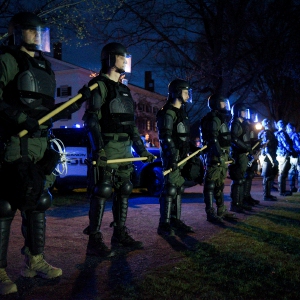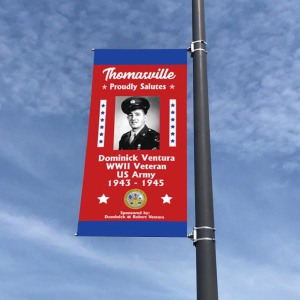| Published: 02-13-2023 6:00 AM |
In Steve Taylor’s most recent article “A Look Back: White River Junction in the 1950s” (Feb. 6) he writes about the good old days stating: “downtown stores hadn’t yet been destroyed by the Vermont sales tax that came a decade later.” What an eye roller! If sales tax were the downfall of America’s downtowns then similar communities, like Claremont, would’ve never seen a downturn (given that there is no sales tax in New Hampshire.)
The decay of Main Street has been a shift to a car-centric society and a sprawl mindset. Increasing density, reducing parking and investing in public transit are key to protecting our walkable downtown areas and keeping our countryside from becoming an endless swath of suburban homes.
Time and time again, however, we opt for the opposite. The article “City Council will put zoning changes before Lebanon voters” (Jan. 20) floats the view from Lebanon that creating low-density cottages in their downtown will help with affordable housing. It’ll be good for Airbnb, but bad for the people who live in Lebanon. Simultaneously Lebanon is building apartments (“Lebanon Planning Board approves riverside apartment proposal,” Oct. 28, 2022) but with the caveat that it has a two-story parking garage to boot. At the time of the article the developers hadn’t had any coordination with Advance Transit, seemingly thinking of public transit as a complete afterthought.
The lesson we can take from Steve Taylor’s wistful nostalgia trip is that maybe we should prioritize our village centers again to make them more livable for people instead of convenient for cars.
Chico Eastridge
White River Junction
Voters of Royalton will be asked to vote on Article 9 at Town Meeting.
This article asks “Shall the voters disapprove the Ordinance Regulating All-Terrain Vehicles (ATV’s) that was adopted on December 27th 2022?”
Article continues after...
Yesterday's Most Read Articles
 A Look Back: Upper Valley dining scene changes with the times
A Look Back: Upper Valley dining scene changes with the times
 Kenyon: Dartmouth shows it has no patience for peaceful protest
Kenyon: Dartmouth shows it has no patience for peaceful protest
 Hartford Selectboard considers banner policy amid controversy over ‘Hometown Heroes’ project
Hartford Selectboard considers banner policy amid controversy over ‘Hometown Heroes’ project
 Killington is the East’s largest ski resort. A developer wants to expand on that in a big way.
Killington is the East’s largest ski resort. A developer wants to expand on that in a big way.
Please read the actual ordinance which is available on the town web site at RoyaltonVT.gov. Ordinances can be found in the “Documents and Reports“ section. There is a list of roads and a map so you can see if roads you travel or if your property will be adversely impacted by this change.
A yes vote will keep ATVs off the roads. A no vote will allow ATVs to travel on the same roads as cars.
I feel that it is important to note that if this ordinance stands it will allow anyone in the VASA club to bring their ATVs to Royalton and ride them on our town roads. The Royalton Police Department does not have the personnel or equipment to handle enforcement.
This ordinance was adopted after the question was raised last year and passed by a single vote. It is part of the democratic process to allow the voters to petition and vote to disapprove a recently adopted ordinance.
Nowhere is it more obvious that your vote counts than in Royalton.
HB 42, recently signed by Gov. Scott, extends pandemic rules to apply to this year’s Town Meeting meaning that Article 9 will be voted on by Australian ballot. You can vote in person on March 7, or you can vote early or request an absentee ballot from the town clerk.
Stuart Levasseur
Royalton
I was pleased to read that former Windsor school principal Tiffany Riley has received some justice for the despicable treatment she was subjected to by the School Board (“Former Windsor high principal settles lawsuit over 2020 ouster,” Jan. 18). Her comments regarding her honest reservations about supporting Black Lives Matter were deemed “insanely tone-deaf” by people associated with the school system, and she was summarily dismissed without the benefit of due process. Later the School Board tried to walk it back, but the judge saw through it all, and she was awarded $650,000 for damage to her reputation and loss of employability, a third of which went to her lawyers.
Not being an attorney or a member of the insurance industry, I don’t claim to fully understand the concept of subrogation, but it is the transference of blame by insurance companies to minimize their payment of claims, usually by going after those with the deepest pockets. If I was insuring the Windsor Southeast Supervisory Union, I’d be tempted to go after leaders of the Black Lives Matter movement, and I’d do it before high-end California coastal properties they purchased slide into the Pacific as a result of recent torrential rains and flooding. BLM had at least a contributory effect on violence and destruction in cities across America in the wake of police killings of Breonna Taylor and George Floyd in 2020.
It’s very sad that Tyre Nichols was killed by now-former Memphis police officers, and equally sad that BLM has been given a second wind by this tragedy. Some might term it “George Floyd 2.0.” The difference is that this crime was not perpetrated by white police officers but by five who are Black. The Memphis police director summed up their acts as “man’s inhumanity to man.”
Such atrocities do not respect racial boundaries, as any one of us is potentially capable of this apart from supernatural restraint if our moral compass is misaligned. I fear their misdeeds will somehow be attributed to “white supremacy.”
Fortunately, Nichols’ family has requested that any protests be handled in a peaceful manner.
Perhaps the police reforms demanded will include strengthening of “duty to intervene” policies.
William A. Wittik
Hartford
]]>

 Editorial: Response to campus protests only adds fuel to the fire
Editorial: Response to campus protests only adds fuel to the fire Editorial: Chris Sununu’s moral vacuum
Editorial: Chris Sununu’s moral vacuum Editorial: Gambling tarnishes America’s sporting life
Editorial: Gambling tarnishes America’s sporting life By the Way: A white nationalist’s many mistruths
By the Way: A white nationalist’s many mistruths
